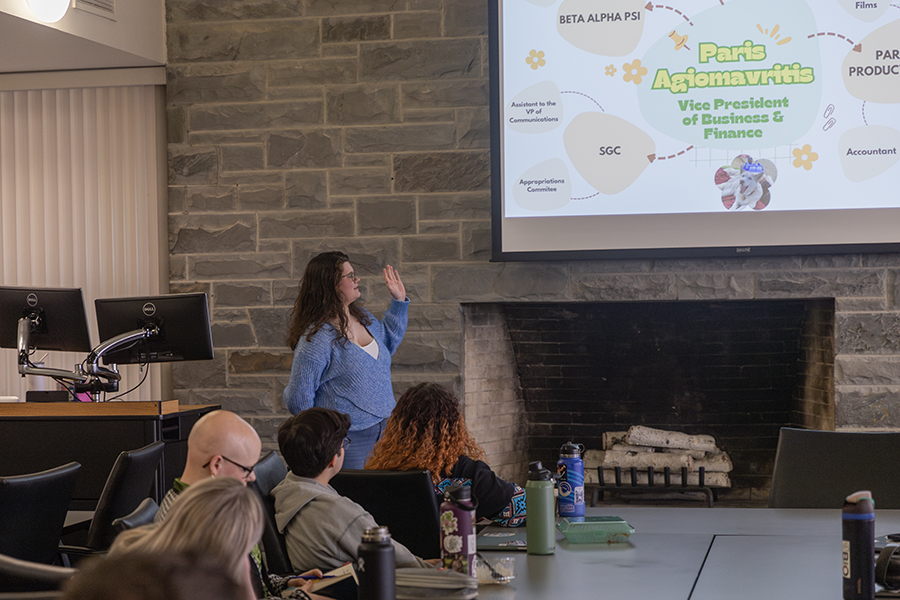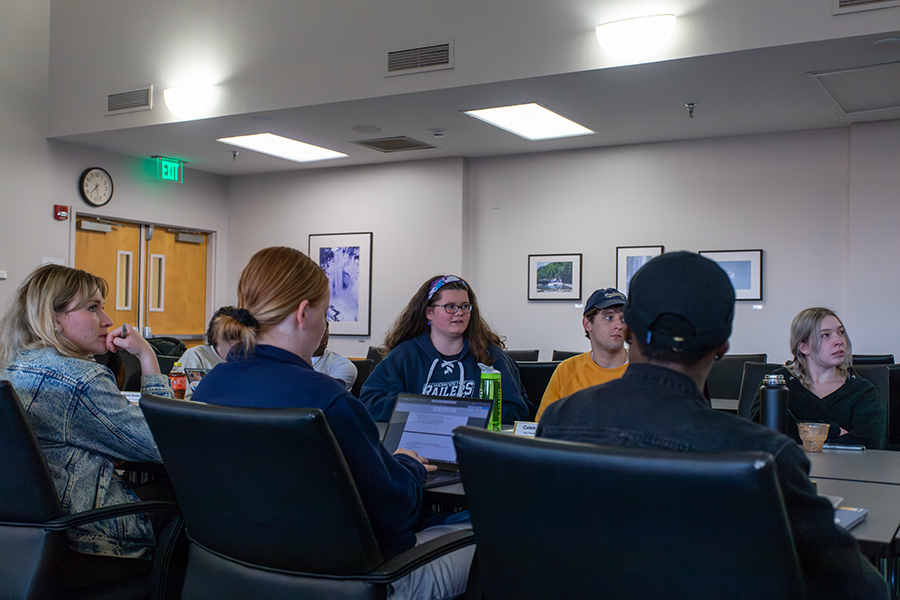As actor and activist Geena Davis visited Ithaca College on March 31, she was accompanied by a recent Ithaca College graduate who is a key media strategist with her institute.
Jarrod Walczer ’13 is the See Jane fellow at the Geena Davis Institute on Gender in Media, where he has been named the director of the Media Research Initiative, analyzing films to determine the accuracy of studies claiming films produced by women fare worse in the box office. He is also a consultant for Kid Made Modern in New York City, an associate producer with Quality of Life Media in San Francisco, an editorial assistant with the Children’s Media Conference in Sheffield, United Kingdom, and an intern for Common Sense Media in Los Angeles.
News Editor Kayla Dwyer spoke with Walczer about his involvement in the Geena Davis Institute, his other occupations and his passion for children’s media.
Kayla Dwyer: How did you become the See Jane Fellow?
Jarrod Walczer: I am the first See Jane Fellow. When I was finishing my first masters at the London School of Economics, I Linkedin’d my way to getting in touch with the CEO of the Geena Davis Institute, Madeline Di Nonno, and I volunteered my brain and my hands and my time to try and do something impactful, to promote gender equality and gender equity. So at first I thought I was going into a volunteer or intern, and I sent her my resume and she said, “I don’t know who you are, but we should find some time to talk,” so a couple of long-distance Skype calls later, we decided that I would be named director of the 2015 Media Research Initiative, and that then matriculated to me being named the first-ever See Jane Fellow.
KD: So you weren’t even looking to be employed?
JW: The position that I share with the Geena Davis Institute is somewhat pro bono in that I’m not getting paid for the study. … The CEO was kind enough to say, “How about I help you to secure a job when you graduate?” So I have been paid in high-level interviews everywhere from Nickelodeon, Disney Channel, Amazon, Netflix, looking to get one at YouTube — kind of a broad mix of work across the productions sphere as well as the strategy and marketing sphere of kids media.
KD: About the Media Research Initiative. That’s a very new thing that you’re creating or directing, or how does that work?
JW: I have developed a study which works to debunk some industry jargon. There have been several articles over the past year which have said that films that are made by women — so director, producer, writer — typically are made with less money and typically perform poorly in the box office. … That didn’t sit well with me, and it didn’t sit well with the CEO. … I now manage a team of seven very bright international master students, and we are coding and analyzing 1,500 films across 30 years of film history from 1984 to 2014, to see if we can analyze three things. The first sphere is the financial: seeing how much films made as well as the ticket numbers. The second is whether they pass gender and family media tests … and evaluate this based on the criteria laid out by Common Sense Media, which is an independent, nonprofit run out of San Francisco that rates films, television shows, books for families. … Then, we are creating our own metric based on the gender and ratio measurement of the creative staff.
KD: How are you working with the Children’s Media Conference in the U.K.?
JW: My supervisor, Greg Childs, and I work remotely. Twice a week I am up at 6 o’clock in the morning and having a call with him in the afternoon his time. I am working to basically develop thought leadership for the conference itself. … I help to not only construct panel ideas, but then bring in panelists for it, bring in producers for it, bring in executives to oversee it and help to structure the conference in a way so that there’s not overlap of the content, but so that the issues we cover are timely and that we get a wide variety of people from my discipline: Everyone from academics to policy makers to makers in the same space to do something really wonderful and create quality programming for kids.
KD: Where does your interest for children’s media come from?
JW: I have a younger brother who is 19. He is a mid-range, functioning autistic. When he was learning to speak and be social, he would do it by memorizing music from shows like “Sesame Street.” … I recognized that that was something that was very special, not only for him as someone with special needs, but that that’s how a lot of children learn, is through the music and the puppets and the colors. … It was with that that I applied to Ithaca and got into the television/radio department to first make kids’ programming. Then it was my thought after finishing my stint at Ithaca that I want to understand all of the theory behind why we’re making programming and what effects that can have, not only on the children themselves, but their families, their communities and the society at large.
KD: How do you multitask these huge endeavors?
JW: I maybe sit as an anomaly, where my social life is built around my projects. A lot of my professional colleagues are also people that I get along with well … so I traverse both of those boundaries where I make time to go and get coffee and lunch, but it will always be over meetings. And I work seven days a week. … There is no off-time, and I recognize that there will never be off-time for me. … I hit the ground hard, I do quality work, I take the time that I need to to get it done.
KD: How did you arrive at that philosophy?
JW: I think if you meet up with any of the people that are still in Ithaca from the time that I was here, they would probably say that I spent a lot of my time reading, a lot of my time writing, moreover most of my time at working. That’s how I found the opportunities. I don’t think I had ever formally applied for a job. … It’s all networking, and they’re all I think relatively large-scale products. For those looking for the advice, it’s not enough to just go and do a job if you want to be a change-maker, you have to understand your landscape as well as the organization you want to work for inside and out.







